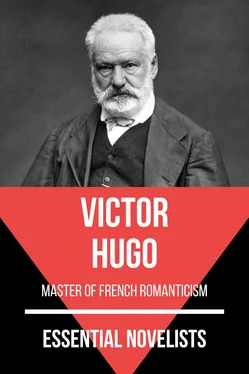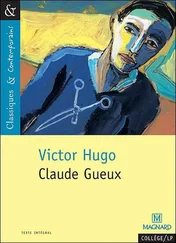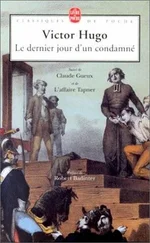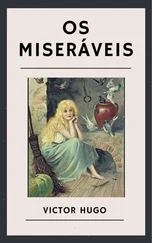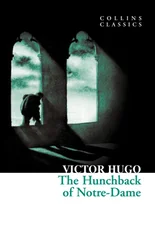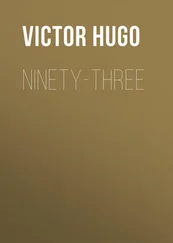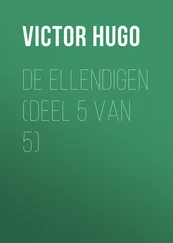“Why! it is perfectly simple,” replied Thénardier, “if that amuses him! It amuses you to have the little one work; it amuses him to have her play. He’s all right. A traveller can do what he pleases when he pays for it. If the old fellow is a philanthropist, what is that to you? If he is an imbecile, it does not concern you. What are you worrying for, so long as he has money?”
The language of a master, and the reasoning of an innkeeper, neither of which admitted of any reply.
The man had placed his elbows on the table, and resumed his thoughtful attitude. All the other travellers, both pedlers and carters, had withdrawn a little, and had ceased singing. They were staring at him from a distance, with a sort of respectful awe. This poorly dressed man, who drew “hind-wheels” from his pocket with so much ease, and who lavished gigantic dolls on dirty little brats in wooden shoes, was certainly a magnificent fellow, and one to be feared.
Many hours passed. The midnight mass was over, the chimes had ceased, the drinkers had taken their departure, the drinking-shop was closed, the public room was deserted, the fire extinct, the stranger still remained in the same place and the same attitude. From time to time he changed the elbow on which he leaned. That was all; but he had not said a word since Cosette had left the room.
The Thénardiers alone, out of politeness and curiosity, had remained in the room.
“Is he going to pass the night in that fashion?” grumbled the Thénardier. When two o’clock in the morning struck, she declared herself vanquished, and said to her husband, “I’m going to bed. Do as you like.” Her husband seated himself at a table in the corner, lighted a candle, and began to read the Courrier Français.
A good hour passed thus. The worthy inn-keeper had perused the Courrier Français at least three times, from the date of the number to the printer’s name. The stranger did not stir.
Thénardier fidgeted, coughed, spit, blew his nose, and creaked his chair. Not a movement on the man’s part. “Is he asleep?” thought Thénardier. The man was not asleep, but nothing could arouse him.
At last Thénardier took off his cap, stepped gently up to him, and ventured to say:—
“Is not Monsieur going to his repose?”
Not going to bed would have seemed to him excessive and familiar. To repose smacked of luxury and respect. These words possess the mysterious and admirable property of swelling the bill on the following day. A chamber where one sleeps costs twenty sous; a chamber in which one reposes costs twenty francs.
“Well!” said the stranger, “you are right. Where is your stable?”
“Sir!” exclaimed Thénardier, with a smile, “I will conduct you, sir.”
He took the candle; the man picked up his bundle and cudgel, and Thénardier conducted him to a chamber on the first floor, which was of rare splendor, all furnished in mahogany, with a low bedstead, curtained with red calico.
“What is this?” said the traveller.
“It is really our bridal chamber,” said the tavern-keeper. “My wife and I occupy another. This is only entered three or four times a year.”
“I should have liked the stable quite as well,” said the man, abruptly.
Thénardier pretended not to hear this unamiable remark.
He lighted two perfectly fresh wax candles which figured on the chimney-piece. A very good fire was flickering on the hearth.
On the chimney-piece, under a glass globe, stood a woman’s head-dress in silver wire and orange flowers.
“And what is this?” resumed the stranger.
“That, sir,” said Thénardier, “is my wife’s wedding bonnet.”
The traveller surveyed the object with a glance which seemed to say, “There really was a time, then, when that monster was a maiden?”
Thénardier lied, however. When he had leased this paltry building for the purpose of converting it into a tavern, he had found this chamber decorated in just this manner, and had purchased the furniture and obtained the orange flowers at second hand, with the idea that this would cast a graceful shadow on “his spouse,” and would result in what the English call respectability for his house.
When the traveller turned round, the host had disappeared. Thénardier had withdrawn discreetly, without venturing to wish him a good night, as he did not wish to treat with disrespectful cordiality a man whom he proposed to fleece royally the following morning.
The inn-keeper retired to his room. His wife was in bed, but she was not asleep. When she heard her husband’s step she turned over and said to him:—
“Do you know, I’m going to turn Cosette out of doors to-morrow.”
Thénardier replied coldly:—
“How you do go on!”
They exchanged no further words, and a few moments later their candle was extinguished.
As for the traveller, he had deposited his cudgel and his bundle in a corner. The landlord once gone, he threw himself into an armchair and remained for some time buried in thought. Then he removed his shoes, took one of the two candles, blew out the other, opened the door, and quitted the room, gazing about him like a person who is in search of something. He traversed a corridor and came upon a staircase. There he heard a very faint and gentle sound like the breathing of a child. He followed this sound, and came to a sort of triangular recess built under the staircase, or rather formed by the staircase itself. This recess was nothing else than the space under the steps. There, in the midst of all sorts of old papers and potsherds, among dust and spiders’ webs, was a bed—if one can call by the name of bed a straw pallet so full of holes as to display the straw, and a coverlet so tattered as to show the pallet. No sheets. This was placed on the floor.
In this bed Cosette was sleeping.
The man approached and gazed down upon her.
Cosette was in a profound sleep; she was fully dressed. In the winter she did not undress, in order that she might not be so cold.
Against her breast was pressed the doll, whose large eyes, wide open, glittered in the dark. From time to time she gave vent to a deep sigh as though she were on the point of waking, and she strained the doll almost convulsively in her arms. Beside her bed there was only one of her wooden shoes.
A door which stood open near Cosette’s pallet permitted a view of a rather large, dark room. The stranger stepped into it. At the further extremity, through a glass door, he saw two small, very white beds. They belonged to Éponine and Azelma. Behind these beds, and half hidden, stood an uncurtained wicker cradle, in which the little boy who had cried all the evening lay asleep.
The stranger conjectured that this chamber connected with that of the Thénardier pair. He was on the point of retreating when his eye fell upon the fireplace—one of those vast tavern chimneys where there is always so little fire when there is any fire at all, and which are so cold to look at. There was no fire in this one, there was not even ashes; but there was something which attracted the stranger’s gaze, nevertheless. It was two tiny children’s shoes, coquettish in shape and unequal in size. The traveller recalled the graceful and immemorial custom in accordance with which children place their shoes in the chimney on Christmas eve, there to await in the darkness some sparkling gift from their good fairy. Éponine and Azelma had taken care not to omit this, and each of them had set one of her shoes on the hearth.
The traveller bent over them.
The fairy, that is to say, their mother, had already paid her visit, and in each he saw a brand-new and shining ten-sou piece.
The man straightened himself up, and was on the point of withdrawing, when far in, in the darkest corner of the hearth, he caught sight of another object. He looked at it, and recognized a wooden shoe, a frightful shoe of the coarsest description, half dilapidated and all covered with ashes and dried mud. It was Cosette’s sabot. Cosette, with that touching trust of childhood, which can always be deceived yet never discouraged, had placed her shoe on the hearth-stone also.
Читать дальше
